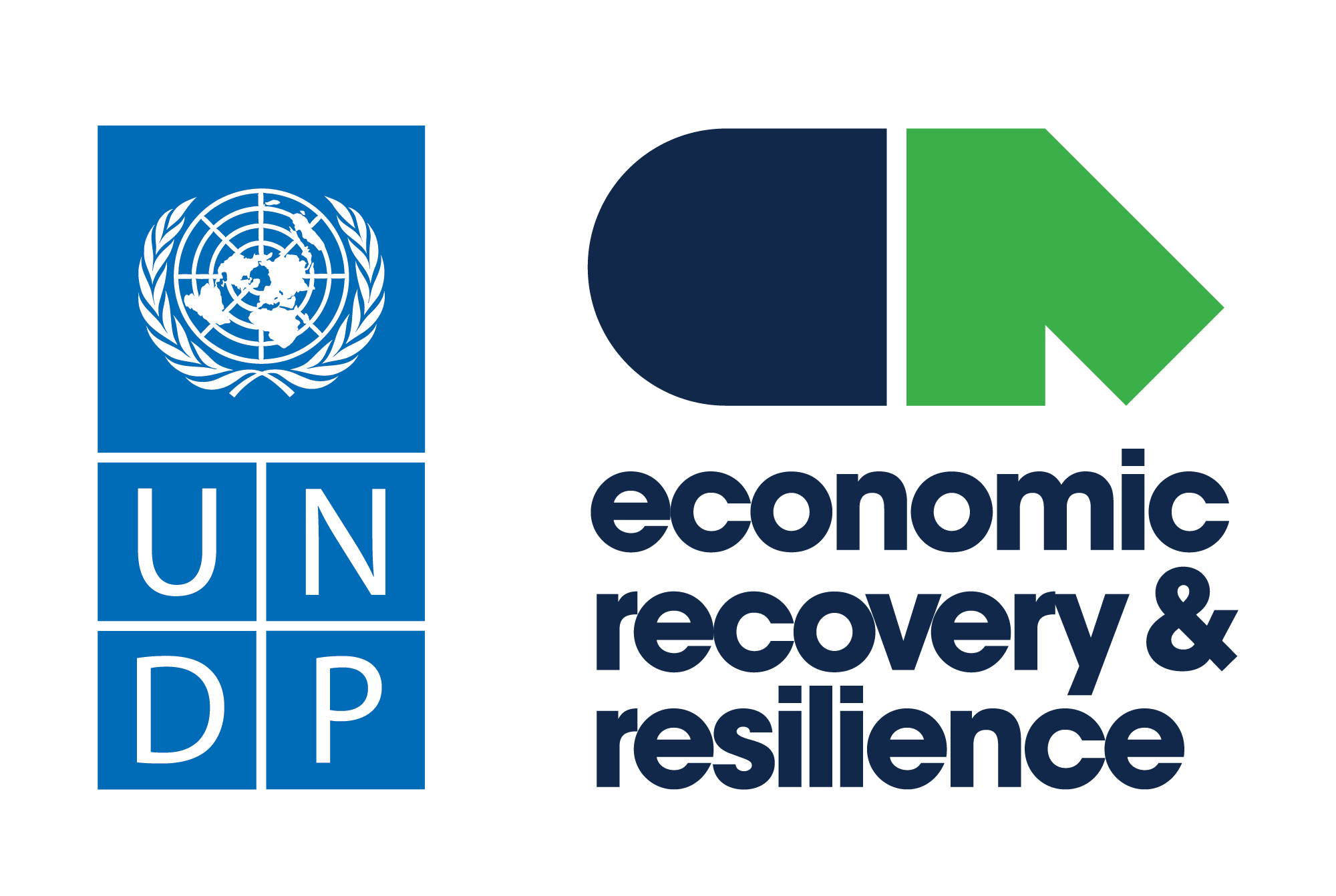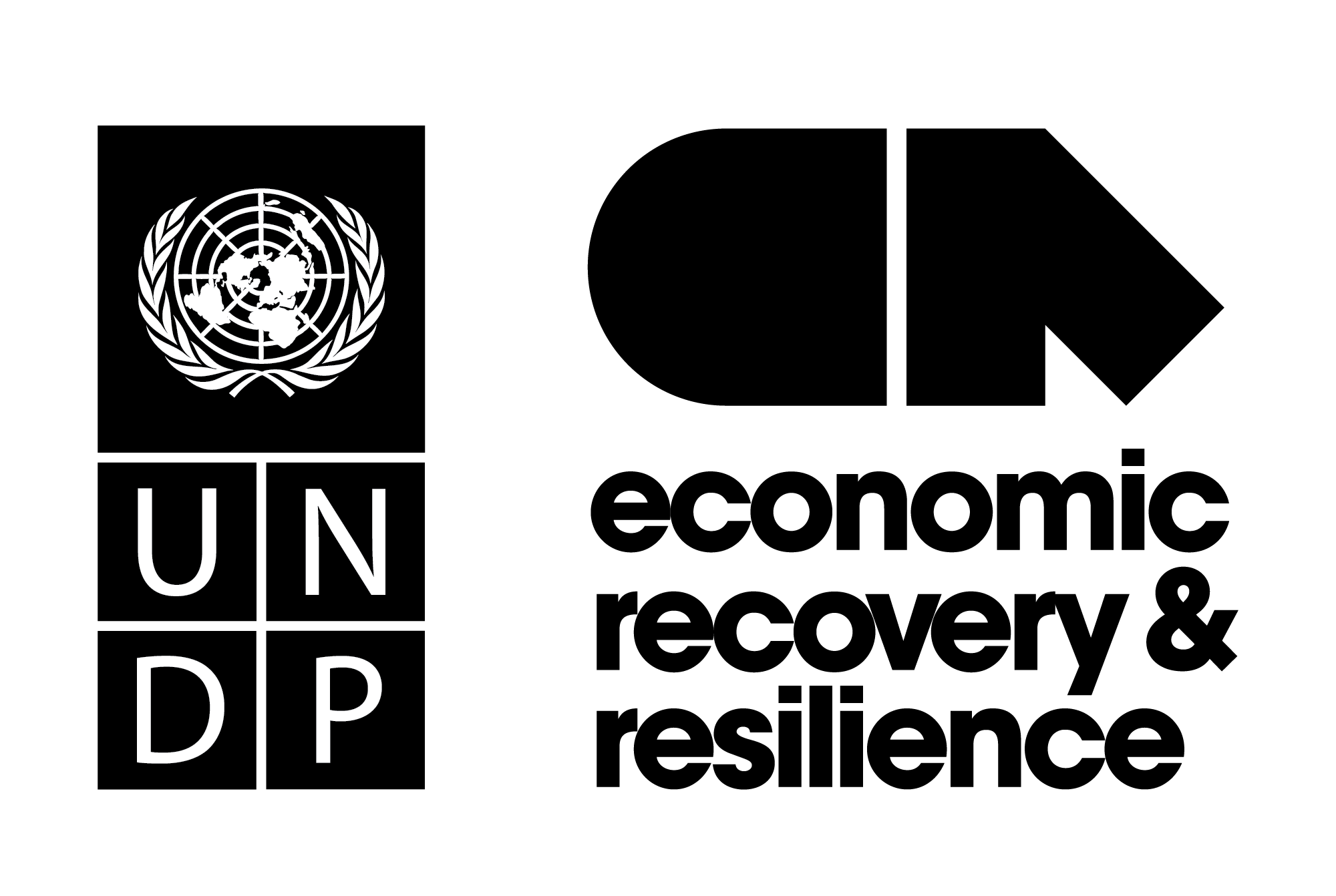In Pursuit of Success – Albanian Businesses Embracing Food Safety Standards
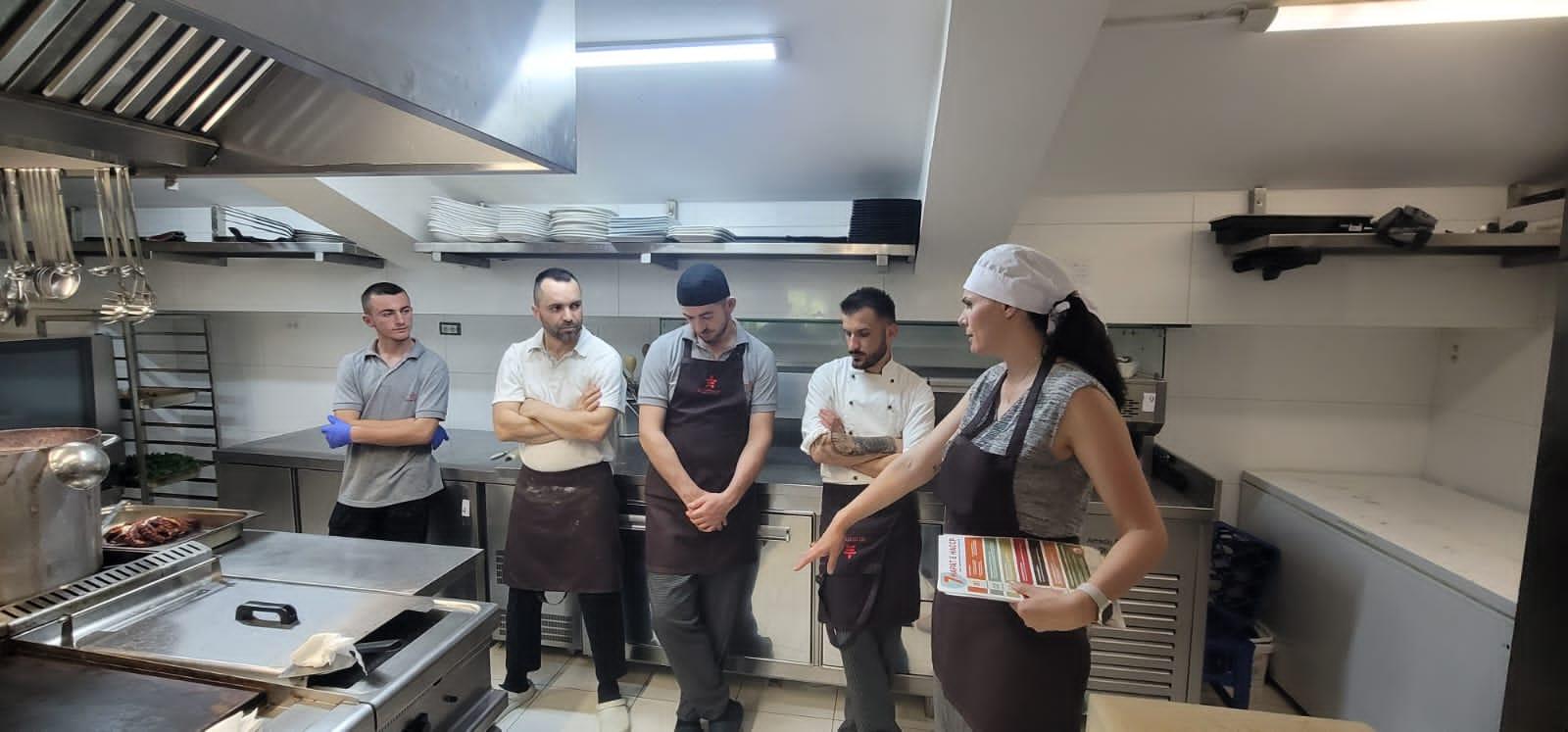
The Economic Recovery and Resilience Program (ERR) is an innovative initiative implemented by UNDP Albania, aimed at boosting Albania’s private sector and fostering direct collaboration between businesses, municipalities, development partners, and other stakeholders. This program, funded by the governments of the United Kingdom and the Netherlands, seeks to consolidate value chains in strategic sectors and enhance the capacity for recovery and sustainability among micro, small, and medium-sized enterprises.
With a mission to energize the Albanian economy after the tragic 2019 earthquake and the Covid-19 crises, ERR leverages three business support methodologies successfully applied by UNDP in many other countries: In Motion, “Growing with your Business” as well as “the Supplier’s Development Programme”. The latter – SDP – represents a methodology of productive chains with a business and social approach, striving to improve and transform business relationships within a value chain, bridging the gap between a leading company (either large or medium-sized) and its suppliers (comprising micro, small, or medium-sized enterprises).
In practice, SDP is executed through highly trained and certified business consultants who provide customized business consultancy and training to selected businesses within a value chain. The methodology unfolds through a structured six-stage process: Promotion and Formalization, Diagnosis, Lead Company-Supplier Interaction, Design of Improvement Plans, Implementation of Improvement Plans, and Documentation and Replicability, facilitating a streamlined approach to enhancing business relationships and performance within value chains.
In Albania, SDP was piloted in a value chain in the tourism sector, led by Starmar, a tourism establishment encompassing a restaurant, bar, and hotel situated in Hamallaj within Durrës Municipality, and six of its strategic suppliers with four falling under the category of food operators. These four food operators, which are micro and small local businesses, passionately craft and supply Starmar with fresh pasta, bread, sweets, wine, as well as fruits and vegetables.
Within the program’s Diagnosis phase, a key priority identified was the need to provide these food operators with comprehensive training and on-site support to ensure their full awareness and compliance with strict food safety standards. This emphasis on food safety stands not only as a critical element in the quality of their market offerings but also as a crucial legal obligation they must meet, complying in all stages starting from primary production, processing, storage, and distribution.
To ensure the highest standards in food safety, in compliance with Albanian law and regulations, SDP sought to train and provide assistance to the food operators in the program in applying the principles of Hazard Analysis and Critical Control Point (HACCP) protocol. HACCP is an international system for reducing the risk of safety hazards in food. In simple terms, the protocol requires food operators to have a plan and apply the system’s principles to keep food safe from biological, chemical, and physical food safety hazards.
Linda Dervishaj, an expert in the field, was brought on board to steer this significant part of the journey. She was tasked with preparing four personalized HACCP manuals, providing tailored training and technical assistance to four businesses in the value chain: Starmar itself, Prodhime Brumi Osmani (a local restaurant and bakery), Kantina Bello (a winery) and Pasta Livia (a fresh pasta producer).
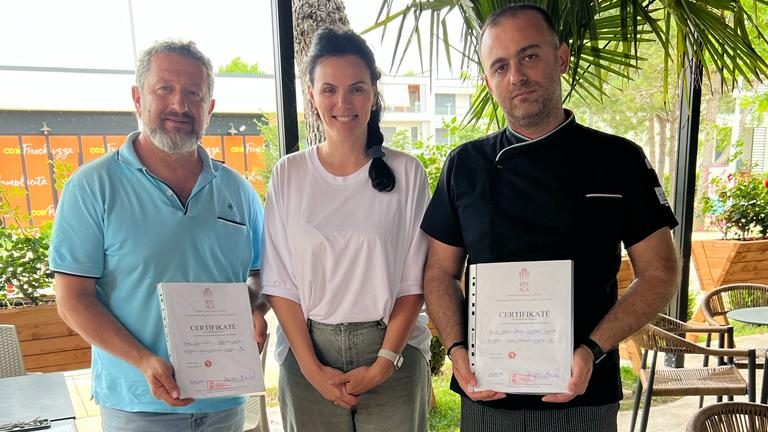
Project Aim and Training Objectives
The fundamental objective driving the HACCP training and technical assistance was to raise the bar of food safety standards in the pilot value chain supported by UNDP, as a way to create a sustainable model for supporting additional value chains in the future. Realizing this goal required the design of a tailored HACCP food safety manual and the provision of technical training to staff members of the four food operators in the program.
This training spanned an array of topics, including hygiene conditions, supplier chain processes, and the importance of Critical Control Points (CCP) amongst others. The sessions were designed to instill knowledge of good hygiene practices, clarify the responsibilities within the HACCP working group, and ensure efficient monitoring of the HACCP manual implementation.
A training as complex as this one comes with its own set of challenges. Understanding the level of awareness among the participants regarding the HACCP system and food risks is a significant hurdle. “Some participants may have limited knowledge, while others may be well-informed but struggle with proper implementation due to the complexities of the food industry chain,” says Linda, “Adapting the training to the participants’ level is a challenge that may require different tactics, such as using sustainability examples in their industry to make the concepts more understandable and applicable.”
These challenges, however, pave the way for growth and improvement, ultimately empowering businesses, and the value chain, as a whole, to enhance their food safety practices and contribute to a safer food industry.
Business-Specific Recommendations and Mandatory Practices
Beyond the training sessions, the project offered significant value in the form of tailored recommendations & on-site technical assistance in implementing HACCP principles for each business.
The process involved implementing specific measures to enhance equipment maintenance protocols, staff hygiene training, and warehouse management practices, coupled with regular audits to ensure the safety of their food and customer satisfaction. These recommendations covered various areas, including facility management and the need for regular inspections, tailored to the unique requirements of each enterprise.
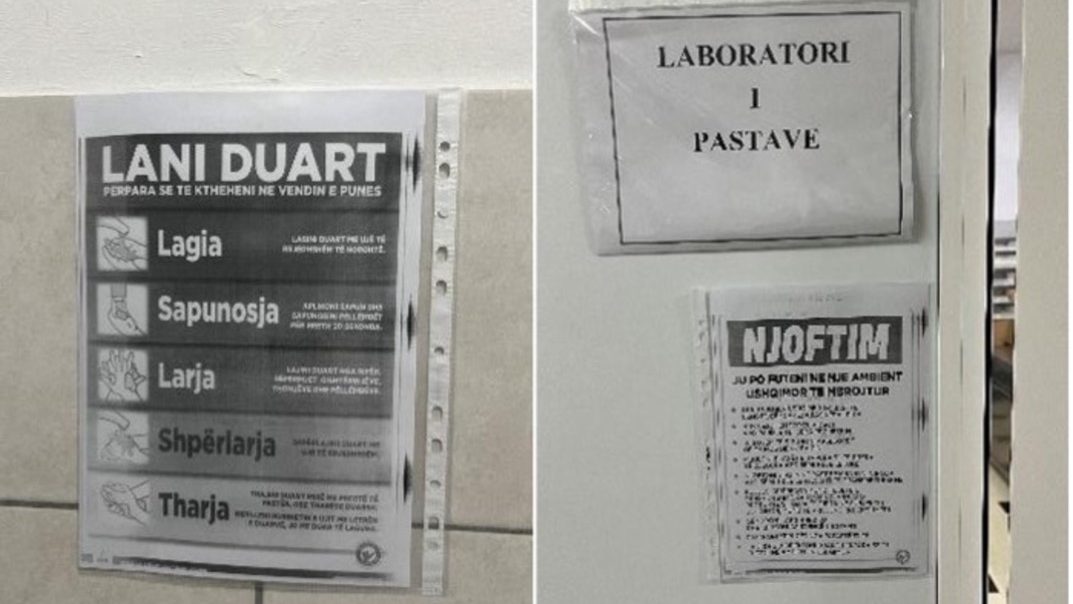
Pasta Livia’s perspective on these recommendations sheds light on their commitment to food safety and hygiene. As expressed by Lorena Papa, Pasta Livia’s Quality Manager, “At Pasta Livia, we’ve always placed special emphasis on food safety and hygiene practices, but after undergoing HACCP training, our staff has grown even more committed and is now very clear of their roles in the process.” This heightened commitment due to the provided support, is evident in their team’s personal hygiene, the cleanliness of their environment, equipment upkeep, and the meticulous care taken during pasta production.
They now rigorously monitor every cleaning, sanitizing, and disinfection process, as well as every step in the production chain, ensuring the quality and safety of their food through specific records and cards. Additionally, with the support from UNDP’s HACCAP expert, they’ve implemented a comprehensive traceability system, covering supplier selection, material storage, production processes, product warehousing, customer delivery, and customer assistance, guaranteeing the proper handling and preparation of their pastas.
Moreover, the importance of mandatory practices required by law was emphasized, including procedures like water examinations, supplier examinations, staff training, and a disinfestation protocol (DDD).
As Albania progresses towards EU accession and with an increasing number of Albanian food operators exporting to European and international markets, compliance with food safety standards is becoming increasingly important for the Albanian private sector. Moreover, the growing awareness of food safety among Albanian consumers further underscores the importance of businesses familiarizing themselves with and adhering to these standards.
Jona Dundo, program coordinator for SDP, emphasizes the following: “During the SDP implementation, it became evident that micro and small businesses may lack the capacity to fully comprehend the importance of food safety standards and apply them appropriately. For this reason, I believe it is highly crucial to develop specific and practical programs that can assist businesses in addressing this issue, as a way to address consumers’ safety and also increase MSME’s competitiveness and preparedness as Albania makes its way toward EU accession.”
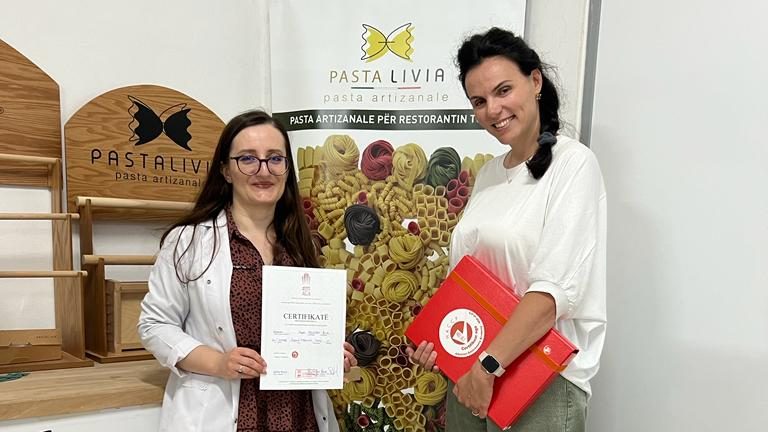
Indeed, understanding and adhering to these standards is not merely a legal requirement. They serve as a passport for businesses like Starmar, Prodhime Brumi Osmani, Kantina Bello, and Pasta Livia to be competitive in the Albanian market and reach the larger European market, assuring consumers of their products’ safety and quality. By equipping these businesses with the knowledge and tools needed to meet the Albanian and EU regulations, the SDP program is not only boosting the businesses’ resilience but also paving the way for their future growth and success.
Success and Continual Growth: Transforming Food Safety Standards
Despite the challenges inherent in conducting such training and technical assistance programs across diverse business profiles, the HACCP training and technical assistance program, within the SDP implementation, has emerged as a beacon of success. It has laid a strong foundation for the participating businesses to amplify their food safety measures and align with the best global practices. However, this is just the beginning. The food operators, now fully equipped with the requisite knowledge and tools to maintain the food safety protocol, bear a legal obligation to its consistent application.
While initial success has been achieved, continuous reinforcement is required to ensure the consistency and accuracy of maintaining the standards. The need for persistent commitment from all stakeholders involved in this journey cannot be overstated.
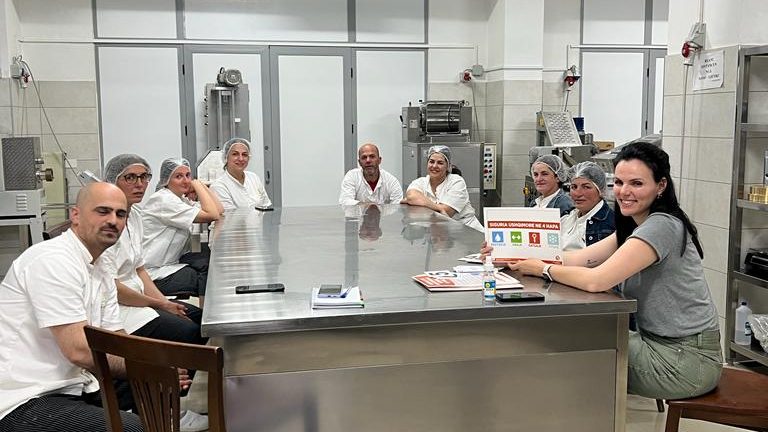
“As we’ve seen through initiatives like the one undertaken by UNDP, supporting MSMEs in food safety is absolutely essential in Albania, especially as the country progresses toward EU accession. These efforts are crucial in ensuring the highest standards are maintained, safeguarding both the industry and consumer health,” emphasized Linda, addressing the significance of such initiatives.
With the guidance of UNDP, technical support from experts like Linda, and the lessons learned from this initiative, the path ahead looks promising. The leaders of the food safety groups within the food operators, who were awarded certificates, serve as a testament to the skills and knowledge they had gained through the training and technical assistance provided by the Supplier’s Development Program. Their achievement underscores the fact that maintaining food safety is an ongoing journey. Yet, with commitment, guidance, and a steadfast approach, it is a journey that can lead to significant achievements.
